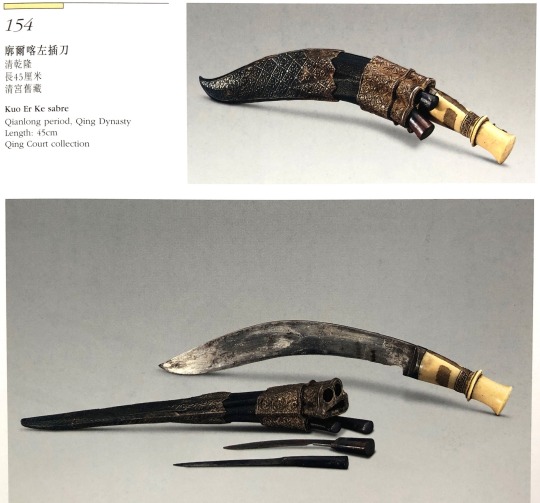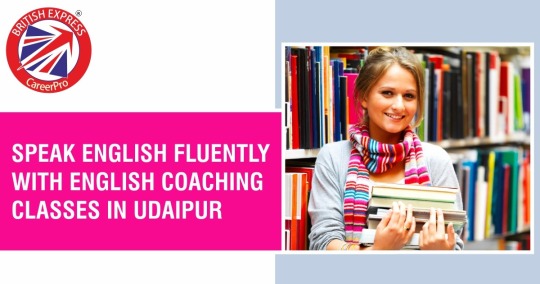#English speaking classes in delhi
Text
English Speaking for Kids

In today's globalized world, proficiency in English has become increasingly vital. For children, developing strong English speaking skills from an early age not only aids in academic success but also opens doors to diverse opportunities in the future. Implementing effective strategies to foster English speaking abilities in kids is paramount.One key approach is immersion. Creating an environment where English is consistently spoken can significantly enhance a child's language acquisition. This can be achieved through activities such as reading English storybooks, watching English cartoons or movies, and engaging in conversations with native English speakers.Moreover, interactive learning tools tailored for kids can make the language learning process enjoyable and effective. Educational games, apps, and online resources designed specifically to improve English speaking skills can captivate children's interest and motivate them to practice regularly.Additionally, structured English speaking classes or workshops can provide children with formal instruction and guidance. These classes often incorporate interactive activities, role-playing exercises, and pronunciation drills to help children build confidence and fluency in speaking English.In conclusion, prioritizing English speaking for kids is essential in today's interconnected world. By fostering a conducive learning environment, leveraging interactive tools, and providing structured instruction, parents and educators can empower children to excel in English communication from a young age, setting them on a path toward future success.
#English speaking course#English speaking courses#English speaking course in delhi#English speaking classes#English speaking classes in delhi#English speaking institute#English speaking institute in delhi
0 notes
Text
German language course in Delhi

An 8th Standard English Guide is designed to comprehensively support middle school students in mastering the English language. This educational resource covers various aspects of English, including grammar, vocabulary, writing, reading comprehension, and literature analysis. It typically includes detailed explanations of grammatical rules such as verb tenses, parts of speech, and punctuation, coupled with numerous practice exercises to reinforce these concepts. Vocabulary sections aim to expand students' word knowledge with engaging activities, while reading sections provide strategies to improve comprehension skills. The guide also focuses on enhancing students’ writing abilities by covering different writing styles and providing tips on crafting well-structured essays and reports. Additionally, literature analysis sections delve into character studies and thematic explorations of prescribed texts, helping students appreciate and interpret classic and contemporary works. Overall, an 8th Standard English Guide serves as an essential tool to bolster students' English proficiency and prepare them for higher academic challenges.
#English Speaking Course#English Speaking course#English Speaking course in delhi#English Speaking classes#English Speaking classes in delhi
1 note
·
View note
Text
Street-Smart Strategies for Becoming a Confident English Speaker

Do you know grammar and everything about the English language, but something still drags you behind in speaking confidently? Fear not, because that is what every beginner experiences. Even when you know everything, the art of expressing may take some time to arrive in you. There are infinite resources online to check out the secret to becoming a flawless speaker. However, the general guidelines are always similar. They don't change even a little.
Opening up is the first step towards grooming your English speaking skill. There is nothing wrong with making mistakes while learning. That, indeed, is a great way to fix them. The more mistakes you will commit, the more you can furnish your speaking acumen.
Now you may hop to Google and start finding How to Learn English. Let me tell you that it is not going out to work out. The same advice you can get from even the nooks and corners on the streets where many excellent speakers take a stroll. The real difference takes charge when you identify your areas of loophole. You cannot have the same problems as others. Sometimes you may need a nudge, and sometimes you need hand-out support to construct the understanding right from the bottom level.
If you feel short of words while speaking, you need to gear up your vocabulary and sentence framing. And that you can boost by reading books and consuming content like movies and songs online in English. The list can even get thicker. You can read newspapers and play word puzzles or quizzes. All these activities are going to make you a better English speaker.
It is easy to use big words, even in normal conversations. That is mostly what shoddy speakers do because they lack the talent and art to communicate in plain or simple English. Speaking plain English with zero errors is always a big achievement. And a language learning hub like BE supports learners in achieving this feat.
Every individual gets equal attention and their issues in speaking get an equal volume of heed like all other students in the classroom. Learning hubs offer no step-brotherly treatment. On the contrary, they offer the right solution to the specific language-related issue of an individual.
After becoming a part of a language school, you will better understand How to Learn English Speaking. It will no longer remain a mystery, and the curtains will be raised to show you the real stage.
While learning English, it is important to make notes every day. Whatever you learn, try to put that dope sheet. The pro way of doing things is to record and recall them later, off class. It is the one big secret any language connoisseur can reveal.
It is wrong to entertain that confidence is the key to learning English effectively. Confidence comes only when you have the knowledge and have practiced abundantly. Confidence comes at the culmination of practice. So keep practicing until you reach the climax of donning the title of an outstanding speaker.
#Ielts coaching institute in Delhi#English speaking course in Delhi#English speaking classes in Delhi#Ielts coaching institute in Noida#English speaking institute in Dilshad Garden
0 notes
Text
Discover best English speaking institutes in Badarpur, Delhi. Read reviews, choose the best institute & enhance your English fluency today!
#Best English speaking institutes in Badarpur#Top English Speaking Classes in Badarpur#Digital school of delhi
0 notes
Text
Best English Speaking Institute in Delhi | Spoken English Classes
Advance English Speaking Institute in Delhi| Oxford School of EnglishAdvance English Speaking Institute in Delhi| Oxford School of English
The Oxford School of English located in Delhi has garnered a reputation as the Top English speaking institute in Delhi for several years. The institute provides a diverse array of courses and programs to assist students in improving their spoken English skills, ranging from beginner to advanced levels.
English coaching classes are offered by the institute, catering to the specific needs of students. Irrespective of whether a student is a beginner or an advanced speaker, there is a course that suits their needs. The courses are designed to provide students with a comprehensive understanding of the English language and its usage.

If you are searching for the Best English speaking institute in Delhi, Oxford School of English is an exceptional choice. The institute is staffed with highly qualified and experienced trainers who provide personalized attention to each student. Innovative teaching methods are employed to assist students in learning the language quickly and easily.
The institute offers spoken English classes in close proximity, making it convenient for students to attend classes without the need for extensive travel. The classes are conducted at flexible timings, allowing students to attend them at their convenience.
The Oxford School of English also provides online English speaking courses for those unable to attend physical classes. These courses are designed to be interactive, engaging, and effective in improving students' English speaking skills.

Top English Speaking Institute in Delhi | Spoken English
For professionals seeking a Professional English speaking course, the Oxford School of English provides an excellent option. The institute offers courses specifically designed for professionals who require effective communication skills in English in their workplaces. The courses focus on business English, making them ideal for professionals who need to interact with clients, colleagues, or partners from around the world.
For individuals desiring to enhance their English speaking skills, the Oxford School of English offers advanced English speaking courses. These courses are designed for individuals who already possess a good understanding of the language and want to further refine their skills. The courses cover advanced grammar, vocabulary, pronunciation, and other aspects of the language.
To conclude, the Oxford School of English is unequivocally the Best spoken English institute in Delhi. With its diverse range of courses, experienced trainers, and flexible timings, it is the optimal choice for anyone seeking to improve their English speaking skills. If you aspire to become a confident and fluent English speaker, the Oxford School of English should be your ultimate destination.
For More Details: —
Website- https://www.oxfordschoolofenglish.in/
Whatsapp: +911145680574
Mobile: 91+ 9667462832
#Spoken English#English speaking Course#English Coaching Classes#top english speaking institute in delhi#best english speaking institute delhi#spoken english classes near me#English speaking course near me#English speaking classes near me#online english speaking course#professional english speaking course#advanced english speaking course#best english institute in delhi#british english speaking course#online speaking course in english#spoken to english#course for english speaking#english spoken online classes#classes for spoken english#bollywoodedit
0 notes
Text
Best English Speaking Course In East Delhi
Best Spoken English Classes In East Delhi
Learning a new language can be a daunting prospect, and it’s even more so when you’re trying to learn one of the most iconic languages in the world. Spoken English is an essential skill to have, especially if you live in East Delhi. So if you’re looking for the best Spoken English classes in East Delhi, then you’ve come to the right place. We’ll tell you all about the top-rated institutes and their courses so that you can make an informed decision. Read on to find out more!
What are the best institutes to learn English in East Delhi ?
There are many institutes that offer spoken English classes in East Delhi. However, not all of them are created equal. Some are more expensive than others, and some may not be as effective in teaching the language. That's why it's important to do your research before enrolling in any class.
To help you out, we've compiled a list of the best institutes to learn English in East Delhi with affordable fees. These institutes have been chosen based on factors such as cost, effectiveness of instruction, and student satisfaction.
1. Cambridge English Academy (CEA) India: This institute is one of the most popular choices for English language learners in East Delhi. They offer both group and individual classes, so you can choose the option that best suits your needs and budget. Additionally, their experienced instructors use the latest teaching methods to ensure that you gain proficiency in the language quickly and easily.
2. British Council: The British Council is another great option for those looking to learn English in East Delhi. They offer a wide range of courses at different levels, so you can find one that's perfect for your needs. Plus, their qualified instructors will help you every step of the way to make sure you succeed.
3. American Language Institute: The American Language Institute offers high-quality instruction at an affordable price. Their classes are small and intimate, so you'll get personalized attention from your instructor. And, they use cutting-edge technology in their classrooms to give you the best.
Cambridge English Academy (CEA) India

Cambridge English Academy (CEA) India is an institute that provides Spoken English classes In East Delhi. It is a great place to learn and improve your communication skills. The staff is very friendly and helpful. They make sure that you understand the concepts properly before moving on to the next level.
The institute has a very good infrastructure with all the latest facilities. The classrooms are spacious and well equipped with all the necessary things required for the students. The institute also has a library that has a vast collection of books related to the course material.
The fees of the institute are very reasonable and they also provide discounts on group bookings. I would definitely recommend this institute to everyone who wants to improve their communication skills.
Best Engish Speaking Course In East Delhi
#Engish Speaking Course In East Delhi#Best Spoken English Classes In East Delhi#Spoken English Classes In East Delhi
1 note
·
View note
Text
#english speaking classes near me#english speaking classes in online#english speaking classes online#online english speaking classes in noida#english speaking classes in New Delhi
0 notes
Text
Best Institute for English speaking Course in Laxmi Nagar
Best Institute for English speaking Course in Laxmi Nagar
If you are looking for the best English-speaking course in Laxmi Nagar, then you have come to the right place. There are many courses available that claim to be the best, but only a few of them actually live up to the hype. The best English-speaking course in Laxmi Nagar is one that is designed specifically for people who want to improve their communication skills. It should cover all aspects of…
View On WordPress
#best english speaking course#best english speaking course near me#best english speaking institute in india#best spoken english classes in laxmi nagar#free english speaking course by kejriwal#free english speaking course near me#top 10 spoken english institute in delhi
0 notes
Text
Khukurī (kukri) types and accessories
[a compilation of articles by Peter Dekker, Mandarin Mansion Antiques, 2020; text and photographs licensed under a Creative Commons Attribution 4.0 International License]
The Khukurī (खुकुरी )

A Nepalese khukurī, 1850s
The khukurī (खुकुरी) is the traditional utility and fighting knife of Nepal. It is strongly associated with the Ghurkas, a Nepalese soldier class. Khukurī are characterized by a forward curving blade that widens considerably before forming a fairly sharp point.
The knife goes by many names, but the best-established names and their romanization are khukurī (खुकुरी ) and the simpler khukri (खुक्रि), both appear in comparative and etymological dictionary of the Nepali language of 1931. [1] The simplified word kukri is in common use today, mainly among English speaking collectors.
18th century
The first few reliable images we get of early khukurī are two 18th century pieces, exhibiting striking similarities even though one is in a Chinese collection and the other was illustrated by an English expedition party.
First, an 18th-century khukurī that appears in the Palace Museum collection in Beijing.1 It was probably captured in battle or presented during the signing of a treaty during the Tibet-Ghurka conflicts of 1788-1792.

Khukurī in the Palace Museum collection, Beijing.
The relatively narrow handle with minimal flare in the pommel is also seen on Kirkpatrick's depiction of the khukurī, the first such illustration to appear in European sources.

Early illustration of a khukurī. From Colonel Kirkpatrick's 1793 account of Nepal.
Another early piece, most likely the late 18th century, was obtained by Lord Egerton in 1855. It was published in his book Indian and Oriental Arms and Armour and is now in the Victoria & Albert Museum. V&A accession number: 3095(IS).

One of the Egerton khukurī
This piece has some early features like the shallow kauro (notch), and the overall form of hilt and blade. The workmanship looks Indian, and it may have been made by Indian craftsmen.
19th century
Some well known early 19th-century depictions of khukurī are in the Fraser Album. A few of them were actually made, commissioned by William Fraser (1784-1835), a late Mughal era British India civil servant in Delhi.

"Nepali soldiers" from the Fraser Album, published 1819.
Notable features seen on khukurī in these drawings are:
Long hilts with gently flaring pommels
Black enbroidered scabbards with small chape
A recurved shape to the scabbard
Types
Hanshee khukurī (हँसिया खुकुरी)

The hanshee khukurī or simply hanshee is an early type of khukurī that is characterized by having a long hilt and a rather long and relatively narrow blade with a strong curve. Other than most types of khukurī which double as fighting and utility knife, the hanshee appears to have been purely used as a weapon.
The word hanshee derives off the Nepali word hamsiyā (हँसिया) meaning "sickle". Another term used is lambendh, which supposedly means "long handle" containing the word lambe (लम्बे) meaning "long" in Nepali.
The hanshee appears to have been most popular in the late 18th and early 19th century and seems to have fallen out of use by the mid 19th century. Khukurī researcher V.K. Kunwor of Ghurka antiques writes about the hanshee: "These Kukri knives were very popular in the unification period of Nepal (1750-1770) and continued to be used in the Anglo-Nepal War 1814-1816 and up till the Indian Mutiny 1857, from whence it declined in popularity." He also writes that one of the defining features is a handle length of at least 13 cm.
Budhunē khukurī (बुधुने खुक��री)

The fat-bellied budhunē khukri (bottom) compared to a more conventionally proportioned khukri (top)
Budhunē khukurī (बुधुने खुकुरी) is the name of a variation of khukri with a short, broad blade. It is a term that appears in the Comparative and etymological dictionary of the Nepali language of 1931.
Bhojpure subtype: The term Bhojpure turns up in John Powell's unfinished manuscript on the khukurī. Powell notes that it is a term later in use for the earlier budhunē type.
Well known khukurī researcher Viking Kunwor, writing in 2020 adds: "The Bhojpure (from a town (Bhojpur) in the mid hills of eastern Nepal) is one of several styles within the larger Budhume group (a term which is a based on a broad bellied fish spieces). The many tribes can be attributed to these weapons such as Limbus and Rais make only the deeper bladed Bhojpure, the Gurungs, Tamangs and Chhetris make the seerpat and the Newars are the artisans who are responsible for many of the finely carved wooden scabbards, intricate decoration and engraved blades."
Sirupātē khukurī (सिरुपाते खुकुरी)

A sirupātē khukurī of the early 1800s.
Sirupātē (सिरुपाते) is a word commonly used to describe a long, slender version of a Nepalese khukurī.
The word sirupātē (सिरुपाते) appears in Ralph Lilley Turner’s A Comparative and Etymological Dictionary of the Nepali Language of 1931 and is described as: "सिरु-पाते siru-pāte,adj. Long and slender like a blade of siru"
Siru (सिरु) is the name of a local plant. Pātē (पाते) means "leaf". Turner gives the meaning for siru (सिरु) as the name of two varieties of grass or reed: (1) Imperata arundinacia (= khar-siru, used for thatching); (2) Imperata arundinacia var. latifolia. (Another possibility may be Hypoxis aurea which is called ban siru (बन सिरु) locally.)
Kothimora khukurī (कोथि मुहुड़ा खुकुरि)
Kothimora khukurī refers to a khukurī in an ornamental scabbard, usually with elaborately worked silver mounts but sometimes found in silver with parcel gilding or entirely golden mounts as well. 1
The term primarily applies to the scabbard, there may be a very mundane khukurī inside, although in some cases they were produced together and both of a higher than usual quality.
The word consits of kothi (कोथि), and muhura (मुहुड़ा). Kothi (कोथि) is the Nepali word for the silver chape on the scabbard of a khukurī. 2
Muhura means “face”. Colonel J.P. Cross states that the full wording would be “kothimora dap bha'eko khukurī”. This would literally translate to "silver chape face scabbard done khukurī", written in Nepali it is कोथिमुहुड़ा दाप् भएको खुकुरी.
John Powell, a pioneer in khukurī studies, distinguished three main types: The "Palace or Court kothimora", "regimental kothimora" and the "box kothimora". He also noted that many do not fall into these set categories, and those can just be referred to as kothimora khukurī.
Palace or Court kothimora: Usually with black leather covered scabbard with gold or silver scabbard mouth and endpieces. Each fitting worked in repousse or engraved, frequently with the National Coat of Arms of Nepal.

Palace or Court Kothimora khukurī
Regimental kothimora: The most commonly encountered type. These were primarily made for Ghurka soldiers. Powell describes that sometimes these were just regular fighting khukurī that were brought to the metal worker to fit the scabbard with a fancy dress, usually in repousse silver, as an honour permitted to men of valor.
As military weapons, they sometimes come with regimental insignia, but are more often encountered decorated with traditional local elements. Their wooden scabbards can be covered with leather or silk velvet.

A large kothimora khukurī.
According to Powell, in the British Indian army, regimental kothimoras were worn only by the Pipe Major (senior bagpiper) when on parade and senior NCO and ORs of the Officer's Mess. They were also presented to retiring Ghurka officers, or when an officer moved up rank.
Box kothimora: The main defining feature of this type is that the scabbard does not have separate leather or fabric pockets for karda and chakmak, it is all integrated in a single case, often clad in sheets of silver going around the circumference of the scabbard, and with mouthpiece and endpiece much like the regimental kothimora. These seem to have been primarily pieces that were presented to civilians.

A box kothimora khukurī presented to wildlife conservationalist Peter L. Achard between 1947-1966.
Accessories

a "trousse khukurī" of the first half of the 20th century
Some items are often stored in the khukurī scabbard alongside the main knife.
Karda (कर्द)

Karda (कर्द) is the Nepali word for a small utility knife that was traditionally carried in the scabbard of a khukurī. The term comes from the Persian word kard (کرد), meaning "knife". A typical khukurī carries one, but some carry two of them in their scabbards.
Karda typically follow a similar construction as their parent khukurī, with wood, horn, bone, silver or ivory hilts and a metal bolster. The blades are usually more straight than khukurī.
Cakmak (चक्मक्)

Left: Five cakmak, right: Five karda. Notice the subtle differences at the pommel side and the absence of an edge bevel on the cakmak.
Cakmak (चक्मक्) is the Nepali word for a small knife-shaped fire and sharpening steel that was traditionally carried in the scabbard of a khukurī. [N.B. must be from Ottoman Turkish چاقماق / Turkish çakmak, "firestriker" (and later "lighter") < Common Turkic *čak- (“to strike”)]

The worked pommel ends of cakmak.
Cakmak typically follow a similar construction as their parent khukurī, with wood, horn, bone, silver or ivory hilts and a metal bolster. For easy recognition when sheathed, the back of the hilt is often grooved or ribbed, in contrast to the smoother backs of the typical karda.

The decoration helps differentiate them from the smooth-pommeled karda when sheathed.
The blades are usually shaped like a straight knife, but sometimes also shaped like a khukurī profile. Contrary to the karda, blades on cakmak are typically dull.
Khisā (खिसा)

Khisā (खिसा) is the Nepali word for a small purse that was traditionally carried in the scabbard of a khukurī.
The purse was usually used to hold tinder consisting of the bark of the sago palm, bamboo, or plantain. The tinder was called jhulo (झुलो), literally meaning "fiber".
— Peter Dekker, Mandarin Mansion
196 notes
·
View notes
Text
Following is a post i came across on facebook and i thought i should share it here please read it...
TRIGGER WARNING: ABUSE, SEXUAL GROOMING
It has been a strange couple of days. A professor from an esteemed University in Calcutta was called out for sexual abuse and within 72 hours, another professor died by suicide. It is like just when the discourse of power being dangerous, and blind reverence toxic was taking the centerstage, it was hijacked by a sea of obits, outlining all the ways a man has changed the lives of countless students.
I must put this out as a disclaimer that I was not taught by him neither was I a student at xx. I’d like to believe he was every bit as good a teacher as so many people are professing. I was in xxxx University though and xxxx did teach me. So did a lot of professors who are still part of the present Xxxxxx University English department faculty. To say that the last couple of days have been triggering would be to put it too mildly. It has been a nightmare that has punctured my work, disrupted my sleep and peace of mind. Because, suddenly, what me and my friends would talk about in close quarters are out in the open.
I belong to the 2011-2014 batch of xxxx University. I also did my MA in English from there. Back when I studied, there was a professor who was every bit as cool and student-friendly we read about in book and watch in awe in movies. He would chat with us after class hours, have lunch and endless cups of cha with us, drop all filters and share stories of his personal life with us. He was a friend.
Over the course of my time at xxxxxx my friend and I became close to this professor. We would chat all the time, spend every weekend at his house. To us, he represented what we did not find in our parents and peers. He was liberal, eloquent, and possessed a morality which he himself had defined. He flamboyantly told us how he could - and had - sleep with any woman he wanted to. And we, in our early 20s, took it as a trademark of charm. For three years, he was one of the closest friends I had on campus. No topic was off-limits.
We remained friends till much later. I completed my post graduation from xxxx and relocated to Delhi. Later, in 2016 he met me in Delhi. At xxx, specifically. I was alone with him in a room and following a heartfelt conversation, he forcibly kissed me. At 24 then, my only defence was, “I have to leave.”
By then our association had run too deep. I knew he was ‘this’ person…”wicked, charming, flirtatious”. I convinced myself that he was just being himself and pushed it at the back of my head. He pretended it never happened, so did I.
Two years later, my friend and I recollected our time in college. We spoke about everything that had happened to us while we both changed cities. This was close on the heels of the #MeToo movement. By now we had a vocabulary for abuse, some recognition. We realised the professor had actually spent years grooming us, a terminology Indian educational sites neither talk about nor are familiar with. If you check online, the definition reads: “when someone builds a relationship, trust and emotional connection with a child or young person so they can manipulate, exploit and abuse them.” This is precisely what he had done.
I understand that whatever happened with me did when I was technically no longer his student. And, for argument’s sake, I was an adult. But abuse hits in retrospect and age is hardly a signifier of age. Imagine, an older, more powerful man slowly alienating you from others in your class, spending years convincing you that you are special enough to be his friend. That this lifestyle is conventional, rational. It is not. It took me many more years to admit to myself and the courage of someone else speaking up to write all this. I expect to achieve nothing out of this. I just want to sleep better knowing that I did my bit in sharing my experience and that those who are in the universities will be less naive than me and my friend was. Also, let me assure you he has done worse both on and off campus. But that is not my story to tell.
14 notes
·
View notes
Text
Improve Your Language Skills with the Best Speaking Classes in Delhi.
Language skills are crucial in today’s globalized world. Whether for personal growth, professional advancement, or social interactions, mastering a language can open numerous doors. If you're looking to improve your language skills, there's no better place than the Premier Institute for Professional Studies (PIPS) in Delhi. PIPS offers the best speaking classes designed to unlock your potential and help you achieve fluency. This comprehensive blog will explore why PIPS stands out as the top choice for language learning, the structure and benefits of their courses, and how these classes can transform your communication abilities and overall confidence.

Why Choose PIPS for Language Speaking Classes?
1. Diverse Language Offerings
PIPS offers a wide range of language speaking classes to cater to different interests and needs. Whether you want to learn English, French, Spanish, or another language, PIPS has specialized courses to help you achieve proficiency. The institute’s diverse offerings ensure that students can select a language that aligns with their personal or professional goals.
2. Expert Instructors
The quality of instruction is a defining feature of PIPS. The institute employs experienced and qualified instructors who are native speakers or highly proficient in the languages they teach. These instructors bring a wealth of knowledge and practical experience to the classroom, providing students with a rich learning experience.
3. Comprehensive Curriculum
PIPS’s language courses are meticulously designed to cover all aspects of language learning, including speaking, listening, reading, and writing. The curriculum is structured to ensure that students develop a well-rounded skill set, enabling them to communicate effectively in various contexts.
4. Interactive Learning Environment
PIPS fosters an interactive learning environment that encourages active participation and engagement. The classes are designed to be dynamic and stimulating, with a focus on practical communication skills. Students engage in discussions, role-plays, and group activities that enhance their speaking abilities and build their confidence.
5. Flexible Learning Options
Understanding the diverse needs of its students, PIPS offers both online and offline language speaking classes. This flexibility allows students to choose a learning mode that fits their schedule and lifestyle. The online courses are interactive and accessible, ensuring that students can learn effectively from anywhere.
6. Placement Assistance
One of the standout features of PIPS is its commitment to student success beyond the classroom. The institute provides 100% placement assistance, helping students secure opportunities in various organizations. With connections in more than 100 companies, PIPS ensures that graduates have a smooth transition into the professional world.
7. Scholarships and Financial Aid
PIPS believes in making quality education accessible to all. The institute offers up to 100% scholarships to deserving students, easing the financial burden and allowing them to focus on their studies. This commitment to supporting students financially further solidifies PIPS as the best choice for language speaking classes in Delhi.
Course Structure and Benefits
English Speaking Classes
The English speaking classes at PIPS are designed to help students achieve fluency and confidence in English. Whether you're a beginner or looking to refine your skills, PIPS offers courses tailored to different proficiency levels.
Basic English Speaking Course: This course is ideal for beginners and covers fundamental aspects of English, including vocabulary, grammar, and pronunciation. Students learn to construct sentences, engage in simple conversations, and build a solid foundation in English.
Intermediate English Speaking Course: This course is designed for those who have a basic understanding of English and want to improve their speaking skills. The curriculum includes more complex grammar structures, enhanced vocabulary, and practice in speaking on various topics.
Advanced English Speaking Course: This course is for students who are proficient in English and want to achieve near-native fluency. It focuses on advanced vocabulary, idiomatic expressions, and nuanced aspects of the language. Students engage in debates, presentations, and discussions to refine their speaking abilities.
Duration: 2-3 months per level
Benefits:
Improved Communication Skills: Enhance your ability to communicate effectively in English.
Career Advancement: Open doors to better job opportunities and professional growth.
Confidence Building: Gain confidence in speaking English in various social and professional settings.
French Speaking Classes
French is a beautiful and widely spoken language that can open many doors internationally. PIPS offers comprehensive French speaking classes for different proficiency levels.
Beginner French Course: Learn the basics of French, including pronunciation, vocabulary, and simple sentence construction. This course focuses on everyday communication and practical language skills.
Intermediate French Course: Build on your basic knowledge and improve your ability to converse in French. The course includes more complex grammar, expanded vocabulary, and practice in speaking about various topics.
Advanced French Course: Achieve fluency in French with advanced grammar, vocabulary, and conversational skills. This course prepares you for professional and academic use of the language.
Duration: 2-3 months per level
Benefits:
Global Opportunities: French is spoken in many countries, providing numerous opportunities for travel and work.
Cultural Enrichment: Gain insights into French culture, literature, and traditions.
Enhanced Cognitive Skills: Learning a new language can improve cognitive abilities and mental flexibility.
Spanish Speaking Classes
Spanish is one of the most widely spoken languages in the world. PIPS offers Spanish speaking classes that cater to different levels of proficiency.
Beginner Spanish Course: Learn the basics of Spanish, including pronunciation, vocabulary, and simple sentence construction. The course focuses on practical communication skills for everyday use.
Intermediate Spanish Course: Build on your basic knowledge and improve your ability to converse in Spanish. The course includes more complex grammar, expanded vocabulary, and practice in speaking about various topics.
Advanced Spanish Course: Achieve fluency in Spanish with advanced grammar, vocabulary, and conversational skills. This course prepares you for professional and academic use of the language.
Duration: 2-3 months per level
Benefits:
Career Advancement: Spanish is in high demand in many industries, providing better job opportunities.
Travel Opportunities: Spanish is spoken in many countries, making travel more enjoyable and immersive.
Cultural Enrichment: Gain insights into the rich cultures of Spanish-speaking countries.
How PIPS Transforms Your Language Skills
Interactive Teaching Methods
PIPS employs interactive teaching methods that engage students and make learning enjoyable. These methods include:
Role-Playing: Practice real-life scenarios to improve speaking skills and build confidence.
Group Discussions: Participate in discussions on various topics to enhance conversational abilities.
Presentations: Prepare and deliver presentations to improve public speaking skills.
Listening Exercises: Improve comprehension skills with listening exercises and audio materials.
Personalized Attention
PIPS ensures that each student receives personalized attention to address their specific needs and challenges. Small class sizes allow instructors to provide individual feedback and tailor their teaching methods to suit each student's learning style.
Practical Application
The courses at PIPS are designed to be practical and relevant. Students engage in real-world activities that require them to use their language skills in meaningful ways. This practical application helps reinforce learning and makes the classes more effective.
Continuous Assessment
PIPS conducts continuous assessments to monitor students’ progress and provide feedback. These assessments include:
Regular Quizzes: Test your understanding of the material and identify areas for improvement.
Oral Exams: Evaluate your speaking skills and fluency in the language.
Written Exams: Assess your ability to write and comprehend the language.
Supportive Learning Environment
PIPS fosters a supportive learning environment where students feel encouraged and motivated. The instructors are approachable and always ready to help, and the peer support among students creates a positive and collaborative atmosphere.
Success Stories
Testimonials from PIPS Graduates
Rahul Sharma: "Joining the English speaking course at PIPS was the best decision I made. The interactive classes and personalized attention helped me improve my fluency and confidence. I now feel more comfortable speaking English in professional settings."
Priya Mehta: "The French speaking classes at PIPS were fantastic. The instructors were knowledgeable and made learning fun. I can now communicate effectively in French, which has opened up new career opportunities for me."
Ananya Singh: "The Spanish course at PIPS exceeded my expectations. The practical approach and continuous assessments kept me on track. I am now fluent in Spanish and planning to travel to Spain to immerse myself in the culture."
How to Enroll
Enrolling in PIPS language speaking classes is simple and straightforward. Here are the steps:
Visit the Website: Explore the detailed course descriptions and choose the one that best suits your needs and goals.
Book a Free Demo Class: Experience the quality of education and training at PIPS by attending a free demo class.
Apply Online: Fill out the online application form and submit the necessary documents.
Scholarship Opportunities: Check eligibility for scholarships and financial aid to support your education.
Start Your Journey: Once enrolled, begin your journey to mastering the language of your choice.
Conclusion
The Premier Institute for Professional Studies (PIPS) in Delhi is the best choice for anyone looking to improve their language skills. With its comprehensive curriculum, experienced instructors, state-of-the-art facilities, flexible learning options, and commitment to student success, PIPS provides everything you need to unlock your potential and achieve fluency in the language of your choice. Whether you want to learn English, French, Spanish, or another language, PIPS offers the perfect platform to hone your skills and make your mark in the globalized world. Enroll today and take the first step towards a bright and fulfilling future in language proficiency.
#Best Speaking Classes#classes#coaching#coaching classes#cuet online coaching#learning#digital marketing#education#natural hair#celebrity makeup#digital marketing course
2 notes
·
View notes
Text
8th Standard English Guide and notes

In the realm of educational resources, the 8th Standard English Guide serves as a beacon for students navigating through the intricacies of language and literature. This guide is more than just a compilation of lessons; it's a roadmap towards linguistic proficiency and literary appreciation.
At its core, the guide is structured to cater to the holistic development of language skills: reading, writing, speaking, and listening. Each section is meticulously crafted to align with the curriculum, providing a comprehensive understanding of grammar rules, vocabulary enrichment, and literary analysis.
Moreover, the guide doesn't merely focus on theoretical knowledge; it emphasizes practical application through exercises, activities, and real-world examples. This approach fosters active engagement, critical thinking, and creative expression among students, nurturing them into articulate communicators and avid readers.
Additionally, the guide doesn't shy away from contemporary themes and diverse perspectives, reflecting the evolving landscape of literature and language. By incorporating a wide array of texts, ranging from classic literature to modern prose, it cultivates empathy, cultural awareness, and a broader worldview among learners.
Furthermore, the guide isn't just a tool for students; it's a resource for educators as well. With its clear instructions, supplementary materials, and assessment tools, it empowers teachers to facilitate effective learning experiences, tailored to the needs of individual students.
In essence, the 8th Standard English Guide transcends its role as a mere textbook; it's a companion on the journey of language acquisition and literary exploration, guiding students towards academic excellence and lifelong love for the written word.
#English guide#English speaking course#English speaking course in delhi#English speaking classes#English speaking classes in delhi#English speaking institute#English speaking institute in delhi
0 notes
Text
Speak English Fluently With English Coaching Classes in Udaipur

India has become the second country in the list of ‘most English speaking countries’ after United States of America because in India the population of English speakers is more than 125 million people. Wherever you travel in the world you’ll find a person communicating in English because English is global language. The people who are not able to speak in English do not need to worry at all because you’ll find various English Coaching Classes in Udaipur where you will be provided various courses in writing, speaking, and reading.
It’s impossible to learn a language in isolation. That is why the first right step to master English language is to join an English language institute like the British Express institute located in laxmi nagar, Delhi where you can enroll for online or offline classes. You can also join any English Speaking Institute Near You.
In this blog I’ll walk you through the ways you can follow to learn English language.
Enroll in a course to realize your potential and level: as you know English is considered as a global language and because of this reason you’ll find various career opportunities after learning English language. So, the first step that you need to take to master any language is to join an institute that provides best courses in speaking, writing, and reading.
Start speaking in English: although, I know that you will find it very strange to have a conversation with anyone walking on the streets. Having a conversation is the first step to learn any language. There are three steps that you can follow:
Get an English tutor
Find a language exchange
Seek English culture
Read a lot: the next step is reading by which you can increase your fluency and command of the English language. You can read newspaper, magazine, or novel. But reading books is crucial because by reading books you can strengthen your vocabulary.
Do write English exercise: to check your knowledge and practice grammar and vocabulary written exercises are best way. The first step, which you need to do, while doing written exercises, is to find a way to check yourself. Doing written exercises on your own is useless if you are not able to check that you have answered correctly or not.
That is the reason to purchase English textbooks with answers in the back or you can use a site that automatically lets you know the correct answers. But for thorough understanding of the rules of grammar and to clear out your doubts you need to join an English language franchise. You can join for our online course that is provided by British express or you can join in English Speaking Institute Near You.
#nearby english speaking institute#british institute of spoken english#english speaking institute delhi#spoken english classes#english speaking institute in delhi#delhi spoken english institute#spoken english classes in noida
0 notes
Text
Huh OK apparently there's a wikipedia project for "the top x most vital articles" meaning they're some combination of broad, important to other articles, notable, and/or highly viewed. Here's their top 10 list (the criteria for inclusion below the cut):

What do you think? What would you change or drop? (Also check out the level-2 and level-3 items. E.g. level 3 contains the first articles about individuals; does it have the most important 113?)
From the FAQ
What are these lists?
Vital Articles are lists of subjects for which Wikipedia should ultimately have corresponding featured-class articles. They serve as centralized watchlists to track the quality status of Wikipedia's most important articles and to give editors guidance on which articles to prioritize for improvement. These articles span the breadth of human knowledge and are divided into various subject areas. The articles listed represent the most important and fundamental articles to the English Wikipedia within each subject area.
What makes an article "vital"?
A vital article is one considered essential to the structure of Wikipedia. There is no longstanding consensus as to what exactly this means, or how to determine which articles are critical to Wikipedia's structure. Several methods of determining vitality are listed below, but they are not ironclad. Feel free to add to the list.
Coverage: Vital articles at higher levels tend to "cover" more topics, i.e. be more broad and general, than articles at lower levels. For example, Science will always be a Vital-1 article. Scientific method, while important to science, is a more specific idea (and therefore not more important) than science itself, and falls into a lower level of vitality. Determining which articles are vital at lower levels often involves looking at the articles at higher levels. For example, since History is of high vitality, World War II is also a vital article, just at a lower level. Since Language is of high vitality, Grammar is also vital, since it is difficult to discuss language without grammar. There can be exceptions to the coverage rule. For example, at the time of writing this, Geology is of higher vitality than Earth science, and Democracy is of higher vitality than Civics.
Essential to Wikpedia's other articles: While Scientific method may be less vital than Science, since it is such a critical topic in regard to science, it absolutely is a vital article, just not Vital-1.
Views: In order to see a page's view counts (in the past 30 days), one can click on "Page information" on the right of the page. In theory, the amount of views a page receives points to it being critical to Wikipedia's structure. However, this is hardly the case. View counts are by no means a definitive marker of vitality and should be approached with caution. In general, view counts should only be compared across similar articles. Recent events and popular celebrities tend to receive views that aren't necessarily "critical to Wikipedia's structure views" as the popularity of these pages is temporary and often irrelevant to Wikipedia's other articles.
Notability: Individuals within the People section represent the pinnacles of their field, such as Albert Einstein in "Inventors and scientists" or William Shakespeare in "Authors". While perhaps we would like to list only nice people that made the world a better place, this is not always the case when it comes to notability, e.g. Adolf Hitler is currently a Vital-3 article.
No (Western) bias: This vitals list is for English Wikipedia. While one may think this would require there to be English-speaking bias, we seek to address such systemic biases and instead promote a comprehensive view of world events. For example, the current consensus is to list two cities in China (Hong Kong, Beijing) and India (Delhi, Mumbai), but only one in the United States. In sections such as those pertaining to People, History, or Geography, weight is given to some articles to produce a more diverse, global list.
6 notes
·
View notes
Text
#English speaking Course#English Coaching Classes#top english speaking institute in delhi#best english speaking institute delhi#spoken english classes near me#english speaking course near me#english speaking classes near me#online english speaking course#professional english speaking course#advanced english speaking course#best english institute in delhi#british english speaking course
1 note
·
View note
Text
IELTS Preparation Classes in Delhi - Your First Step to Studying Abroad!
Preparing for the IELTS (International English Language Testing System) exam is actually the first step for many students around the world aiming to study abroad. The IELTS language testing system is recognized by thousands of institutions around the world, including universities, colleges, employers, immigration authorities, and professional bodies. It assesses your proficiency in the English language across four key skills: listening, reading, writing,, and speaking.
Enrolling in IELTS preparation classes can be extremely beneficial for students for several reasons:
Structured learning: IELTS preparation classes offer a structured curriculum tailored to the format and requirements of the exam. This helps students understand what to expect and how to approach each section of the exam.
Expert Guidance: IELTS preparation classes can provide valuable insights, tips and strategies to help you maximize your performance in the skill area under the guidance of an experienced instructor. They can identify your strengths and weaknesses and provide targeted guidance for improvement.
Practice Materials: IELTS preparation classes typically provide access to a wide range of practice materials, including sample tests, exercises, and mock exams. Regular practice is important to become familiar with the exam format and improve your skills.
Feedback and evaluation: IELTS instructors can provide personalized feedback on your performance, highlighting areas for improvement and suggesting specific strategies to increase your score.
Motivation and Accountability: Studying for IELTS classes in a structured environment can help you stay motivated and focused on your goals. Additionally, knowing that you have regular classes and assignments can provide a sense of accountability, encouraging you to stay on track with your studies.
Peer support: Interacting with classmates who share similar goals with IELTS preparation classes can create a supportive learning environment where you can exchange ideas, practice speaking English, and encourage others.
Remember, success in the IELTS exam requires sustained effort and dedication. While IELTS preparation classes in Delhi can provide valuable assistance, it is essential to supplement your learning with independent study, practice, and English language experience in different contexts. With determination and effective preparation, you can increase your chances of getting your desired score and fulfilling your dreams of studying abroad.
#study abroad#ielts coaching#study education abroad#delhi#student#studies abroad#study abroad in canada#antiques#nonprofits#ielts coaching in delhi
2 notes
·
View notes